Life transforming honey
Carlos Díaz
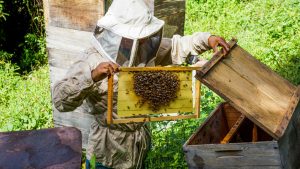
In Los Altos (2017) and Palenque (2013), Chiapas, the Mexican Association of Rural and Urban Transformation, A.C. (Amextra), has implemented an income- generating program focused on the recovery and advocacy of apiculture, with the goal of creating a solution that allows economic growth in the communities of the people involved. The families of the beekeepers are an example of passion, perseverance and transformation; they have embraced apiculture not only as an economic activity but also as a path of reconciliation between their community and nature.
The apiculture that AMEXTRA A.C. advocates for is 100% agroecological, the process provides care and nourishment for the bees and ensures a honey harvest without any intervention of agrochemicals. This is backed up by the principles of agroecology that balance productive activity and the environment with sustainability as the centerpiece.
The honey harvested in Los Altos and Palenque, Chiapas, boasts the follow
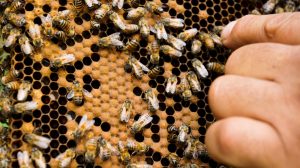
ing characteristics:
- Liquid state: This honey is extracted directly from the hive and is found in a liquid state, without any visible crystals.
- Multifloral flowering (polifloral): Which includes nectar from a variety of plants, flowers, herbs, fruits, oil essences, and trees.
- Ambar color: The taste and color of honey depends on the floral origin and maturity.
- Humidity: 18-19%, less than the 20% allowed in accordance with the “Handbook of Good Livestock Practices among Primary Production of Honey” released in 2018 by SAGARPA, the Mexican ministry of agriculture and rural development.
¿How do beekeepers use an agroecological production of honey?
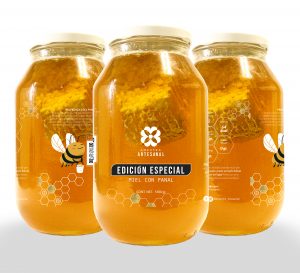 Through these 3 key steps:
Through these 3 key steps:
- Technical training: The training is extensive, it covers topics such as the breeding of queen bees, panel division, prevention, and control of varroasis in the hives to the nurturing of bees. The training is complemented with technical coaching to achieve the necessary parameters in the honey’s quality.
- Ethical commercialization of melliferous production. Through AMEXTRA Artesanal – a unit of commercialization with a policy of fair prices – we distribute the honey produced in the communities throughout different locations in the country such as: Mexico City, the State of Mexico, Morelos (Cuernavaca) and Guerrero (Acapulco and Chilpancingo). We also sell honey through the platform Canasta Rosa. These actions are an alternative to the producers using “coyotes”, or middlemen, that take advantage of the beekeepers by charging over-priced fees. This has a serious impact on the beekeeper’s family’s income and in apiculture as an economic activity in general. (If you are interested in becoming a distributor of our honey, click here).
- Awareness and actions for the conservation of the environment: With the implementation of the MIAF System (Corn Interplanted with Fruit Trees) and a program of community reforestation, the beekeepers – which also engage in agricultural activities – put in practice systems of agroecological production. These systems strengthen their cultivation fields and additionally reinvest in the ecosystem through the planting of forest and fruit trees. The latter has been a communal experience with good results.
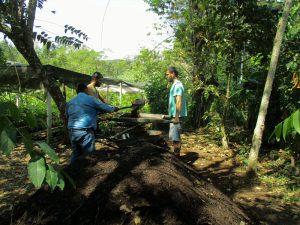
2020’s Results:
- Palenque, Chiapas: 36 beekeepers trained through the replica of the “Training of Instructors of Apiculture” course; 24 hives are maintained with high levels of agroecological management; production of 1,064.4 kg of honey between 2019 and 2020. It is projected that in 2021 2 tons of honey will be collected.
- Los Altos, Chiapas: 36 hives with high levels of agroecological management; 2 apiculture centers (Santa Cruz y Xulumó). The participation of a group of Xulumó women from Aldama, Chiapas stands out with an annual production (2020) of 115 kg of honey.
With the consumption of our honey, you support beekeepers’ families that participate in Amextra’s Income Generating program. Our beekeepers not only provide their labor for the hive’s management and the harvest of honey, but also for the preservation of bees through reforestation and changing the use of agrochemicals in the region as well as feeding the bees in times of flower scarcity.
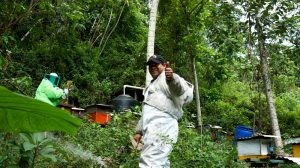
¡Become an ally to our mission!
Consume and recommend our life transforming honey
© 2023 Amextra, Asociación Mexicana de Transformación Rural y Urbana A.C. Todos los derechos reservados, México 2017-2023.





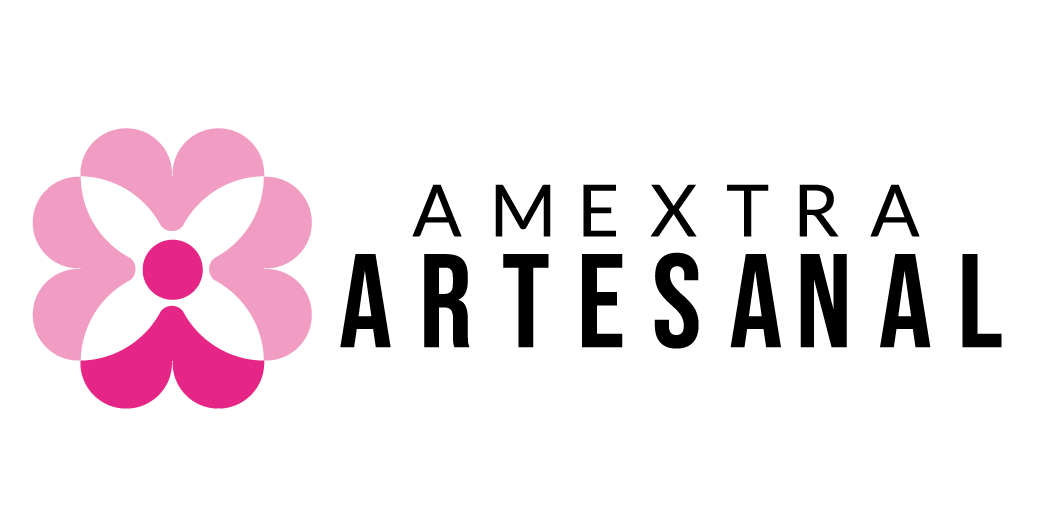


Leave a Reply